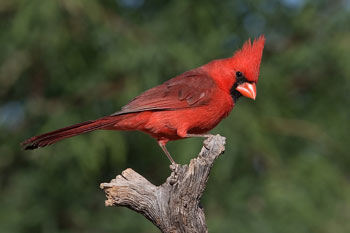I’ve said it before; I’ll say it again. Cathy Day is the reason I applied to the graduate program I started today, and although she isn’t the sole reason I picked it over the others that accepted me, she is a big one. This semester, I’m taking a fiction workshop with her, and in preparation, I read this.
I was going to quote some passages, but then I realized I wanted to quote the whole thing, so instead, just go read it. Seriously. I’ll wait.
Back? Okay. Still here, because you didn’t actually go read it? I’m not kidding. GO.
Now that you’ve read it, let’s talk. My writer friends will back me up on this: I hate short stories with a passion that borders on pathological. (Okay, they might not say borders.) If pushed, I will grudgingly admit that now and then, I do come across a short story I enjoy, and I have written a few that I found tolerable, but those are the exceptions. I hate short stories.
So when Day writes, as you recall, “I know without a doubt that when I was growing up, I absolutely loved to read novels and rarely read short stories unless they were assigned in a class,” I’m with her. It’s #9, though, Writing Right-handed vs. Left-handed, that really got me.
Sometimes a left-handed novelist is wise or stubborn enough to realize that he is not a right-handed story writer with horrible penmanship, but more accurately a beautiful left-handed novelist with perfectly fine penmanship. When he is alone, away from school, he brandishes the pencil in his left hand and sighs. Ahhhhhh. Then in college, he takes a workshop, which is full of nothing but right-handed desks. He puts the pencil in his right hand. Out of necessity, he’s become ambidextrous. And so, he goes through the motions of writing right-handed short stories for class. Assignments that must be completed. Hoops to jump through so that he can be in this class, read books for credit, and get a degree in the writing of fiction. At night, he goes home and puts the pencil in his left hand and works some more on his novel, the pages of which he never submits to his teacher, whose syllabus clearly states that they are to submit short stories that are 8-15 pages long.
If I had a dollar for every time I’ve called short stories a hoop to jump through, I could buy so many more cereal marshmallows than one person needs. And then I could eat homemade Lucky Charms, gnashing my teeth and enjoying the bitter fantasy that the marshmallows were made of the pulped pages of short stories (which, let’s be honest, is plausible).
That’s the key: bitter fantasies.
When I was eleven, I wrote my first novel-of-sorts. It was a hundred-something pages, and I entered it in our local 4-H fair. The rule book didn’t have a page limit for creative writing submissions. I checked.
Come show day, I plopped my binder on the table in front of the judge. She looked the size of it, read the first paragraph, and gave me an honors ribbon that I knew had nothing to do with the quality of my work.
The next year, the rule book specified a ten-page limit. I brought in the first chapter of my new novel-in-progress. Suffice it to say that the year after that, they also instituted formatting requirements.
It’s always been that way. When I want to have the work I care about read, the Powers That Be won’t read it, so instead I put forth work that, to be honest, I don’t really care about. I get grades (which are what count) and feedback (which I file away, in case at some point I need, say, application material) and go back to what I do care about.
There are things fiction writers can learn from poetry. It’s the same line I hear when I say I want to be a novelist, and it’s true—there are things a novelist can learn from short stories. Still, my poetry-focused undergraduate program left me feeling adrift, alone, and embittered, and my short-story-focused education has left me the same way.
I’ve been lucky to have friends and family who have been supportive and interested in my real work. But am I really just spending thousands of dollars and years of my life in the hopes of jumping through enough hoops that one day I can get a couple letters after my name to identify me as a Real Writer, then go be a novelist in peace?
I think not. I hope not. My graduate program is not well-suited to novel writing, and I knew it wouldn’t be, just as I know my professors don’t have the resources to work with me on a novel. Wednesday, though, I start that fiction workshop. We’re focusing on linked stories. It’s not novels, no, but you read the article—I don’t have to tell you that it’s a sign that somewhere out there, there exists something bigger than the standalone 8–15 pages.

 The Mascot. While I can’t claim the cardinal is much more innovative than the eagle of my
The Mascot. While I can’t claim the cardinal is much more innovative than the eagle of my  After doing months of research, using up all my print credit and then some, submitting thirteen applications, and wishing I at least had some pins and needles to wait on so as to be a little more comfortable, my graduate school plans are taking shape. This fall, I’m going to begin working on a master’s degree in creative writing at
After doing months of research, using up all my print credit and then some, submitting thirteen applications, and wishing I at least had some pins and needles to wait on so as to be a little more comfortable, my graduate school plans are taking shape. This fall, I’m going to begin working on a master’s degree in creative writing at